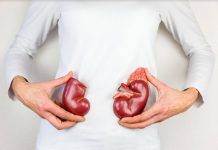Oral cancer is the common name for pharyngeal cancer.This type affects the oral cavity and tissues normally affected are the lips, tongue, cheeks, pharynx and the soft palate. If detection and treatment is delayed, the cancer cells can spread to other areas and infect them as well. This may include sensitive areas such as the brain.
Signs of oral cancer
It is normally not easy to detect possible cancer infection in children. This is because the early signals are not usually painful so even the child will not know that he or she is ill. The signs and symptoms of oral cancer include swellings or lumps on the lips, tongue and neck area. Ingestion or chewing of food may cause pain.
There can also be bleeding that occurs in the mouth, normally from the gums. This is seen by the reddish or white areas on the gums indicating possible patches of the cancerous cells. These patches can be anywhere within the oral cavity and are persistent. The voice of the child can be affected in some cases so look out for the tone and pitch of your child’s’ voice.
The presence of these symptoms will however not be significant enough to diagnose oral cancer. Once oral cancer has been suspected, diagnosis will involve medical examination of tissues from all the suspected areas.
This is done by a specialist. If cancer is detected, then treatment will have to commence at the earliest possible time to prevent further spread of the cancerous cells.
Treatment of oral cancer can however not begin before a dental specialist has approved it. This is because the cancer treatment will make the oral cavity more susceptible to various other infections therefore it is best to only undergo treatment when your dental hygiene is at its best possible apart from the cancerous cells.
Treatment will depend on factors such as location of the cancer cells, size of the lumps, age of the child and his or her health status. This normally includes surgical removal of the tumor and swollen lymph nodes if there are any. Chemotherapy and cancer radiation therapy are necessary in some cases, especially after surgery so as to kill any remaining cancerous cells.
Side effects of oral cancer treatment will depend on the treatment used, as determined by the stage of the tumor and its location. Swelling normally occurs in the face and neck, but heals after a few weeks.
There may also be weight loss due to difficulty in eating. It is therefore important for your child’s’ health, for you to see a dietician who will formulate a balanced diet with foods that your child can eat. Dry, peeling lips can also occur but this heals soon after treatment is complete.









